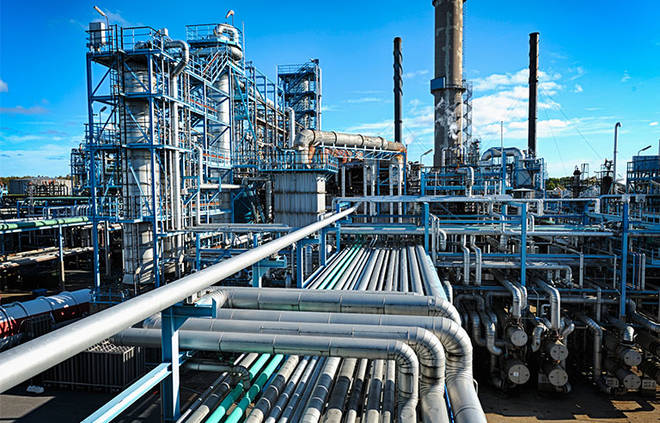Africa has been asked to prioritise infrastructure development and technical know-how to maximise its natural resources, in preparation for the new world of renewable energy.
The Secretary General of the African Petroleum Producers Organisation, APPO, Dr. Farouk Ibrahim gave the advice while speaking to Voice of Nigeria in Lagos State, South-west Nigeria.
Dr. Ibrahim said oil producing countries in Africa should explore markets within the continent.
He said; ‘’We have been conditioned to believe that without Europe and Asia Markets, you can’t get a market, what we fail to understand is that Africa today is about 1.3 billion people, out of this, 600 million do not have access to electricity, 900 million do not have access to any form of modern energy. What this means is that if we can make concerted efforts towards empowering these people to be able to buy energy, the 7 to 8 million barrels that we produce and we sell 75% outside will not be enough for us, we wouldn’t need any external market.”
Improving technologies
He called on all Oil producing countries in Africa to also intensify efforts to improve technologies and to maximise the potentials in renewable energy.
Speaking further on the fuel situation in Nigeria, Dr Ibrahim said Nigeria must find other alternative ways to reduce its over-dependence on petroleum products, explaining why local refining of petroleum products would not have the expected impact on prices of fuel.
He said; ”Whether petroleum products are imported or they are produced in Nigeria, the price is not going to go down, let’s be very honest. If you repair the four refineries that the Nigerian National Petroleum Corporation has, Kaduna, Warri and the two in Port Harcourt, in total, if they are producing maximum, it’s about 450,000 barrels per day, if you put Dangote, it will be about a million plus barrels per day… The key thing you have to understand, particularly, let’s take Dangote for example, many people have this impression that Dangote is coming on stream by end of this year or next year, and once it comes on stream, we are good to go, it’s not true. Dangote refinery is built on Nigerian Territories but it is not in Nigeria, because it is built in an export free zone, it is not in Ota, or in Kano or in Mainland Lagos, No, it is in the export free zone, what they will sell, they will sell in international currency.”
According to him, ”the only thing government can do is to sit and negotiate with Dangote Group and I can guarantee you what Dangote Group will tell them is that, this is what they sell internationally but to be patriotic, they are going to take the same amount but in naira and you can save the cost of freight, if you are buying from Europe you would have paid for the shipping, you save that, now you also save the cost of insurance so these are the savings you are going to have and they are completely insignificant compare to the cost of the litre.”
Solution to fuel subsidy
Dr Ibrahim believed that the solution to the fuel subsidy removal policy in Nigeria is to reduce its consumption of petroleum products.
He said; “What should be done is to find ways to reduce fuel consumption, people who complain about high cost of the litre are also the people that abuse subsidy, you go to a rich man’s house, you find 6 to 7 cars, each of his kids has a car, one for running errand, one to take the kids to school and all these are fuel guzzlers.. What can be done is to say for example for public transport, government is going to subsidise, they can say for all public buses or taxis, we are going to convert them to gas and we will subsidise gas, they do that, everybody will benefit that is those who deserve to benefit.
”If you go and buy a car that takes 20 or 15 litres in 10 kilometers because it has so many gadgets, then, you pay high cost for it.”
He re-emphasised the need to implement the policy to deregulate the market.
‘If we deregulate the market and allow anyone that has the funds and capacity to establish his or her refinery, there will be a lot of products in the market. And when there is so much in the market, it will bring down the cost of the product.
”Currently we don’t produce, we import and even for the import, selected number of people or groups are given the license to import, so there is some sort of not monopoly but oligopoly,” Dr Ibrahim explained.
He added that oil producing countries in Africa should work on sustaining its oil and gas while developing the renewable energy.
VON



